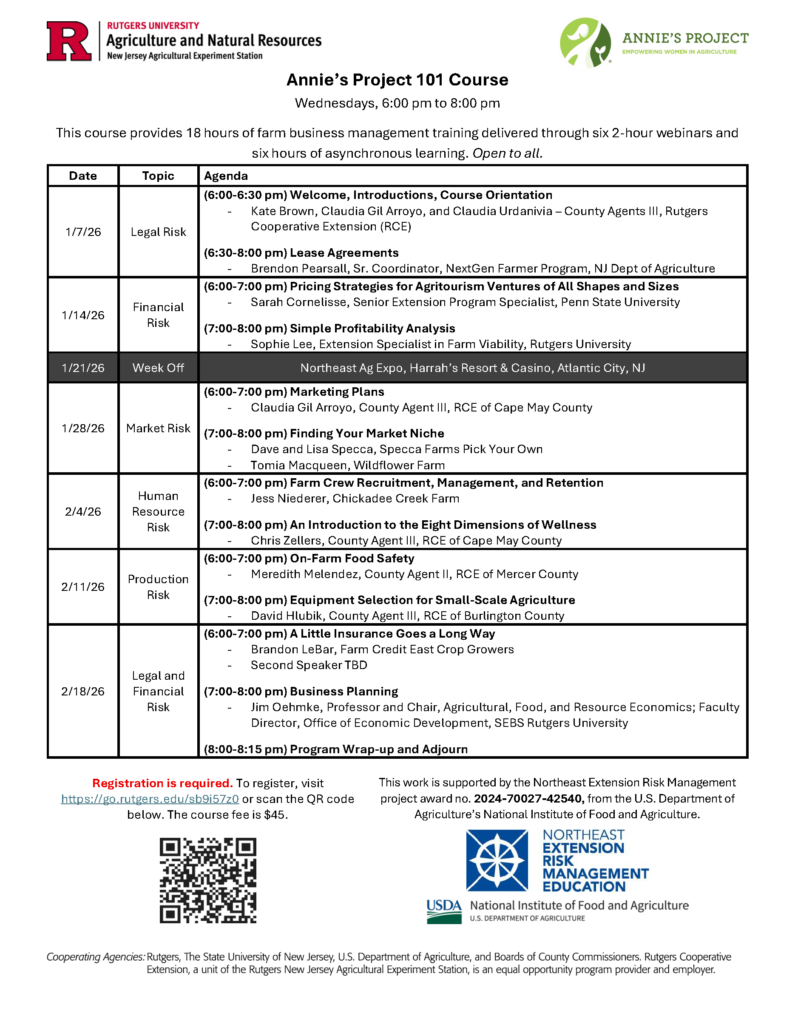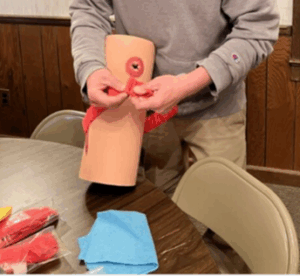When: Tuesday, January 20, 2026, from 10:00-5:00 EST.
Where: Northeast Agricultural Expo (New Jersey Vegetable Growers Convention) at Harrah’s Waterfront, 777 Harrah’s Blvd., Atlantic City, NJ.
To sign up: https://onfarmfoodsafety.rutgers.edu/fsmaac/
Online ticket Sales end on Tuesday, January 13, 2026. Registration after January 13, or in-person registration at the conference, must be paid by check.
Who Should Attend
- Fruit Growers
- Vegetable Growers
- Growers who have farms that fall under the PSR
- Growers who have farms that don’t fall under the rule but will in the future
Benefits of Attending the Workshop
Individuals who participate in this course will gain a basic understanding of:
- Requirements in the FSMA Produce Safety Rule and how to meet them
- Fulfills the requirement for at least one supervisor from a farm to complete food safety training at least equivalent to the standardized curriculum recognized by the FDA
- Microorganisms relevant to produce safety
- Where microorganisms may be found on the farm
- How to identify microbial risks, practices that reduce risks and how to begin implementing produce safety practices on the farm
- Parts of a farm food safety plan and how to begin writing one
- Cleaning and Sanitizing
What to Expect at the Produce Safety Alliance Grower Training:
- Introduction to Produce Safety
- Worker Health, Hygiene and Training
- Soil Amendments
- Wildlife, Domesticated Animals and Land Use
- Agricultural Water (Part I: Production Water; Part II: Postharvest Water)
- Postharvest Handling and Sanitation
- How to Develop a Farm Food Safety Plan
After attending the entire course, participants will be eligible to receive a certificate from the Association of Food and Drug Officials (AFDO) that verifies they have completed the training course. To receive an AFDO certificate, a participant must be present for the entire training and submit the appropriate survey to their trainer at the end of the course.
Does your farm fall under the FSMA PSR? Find out at the link below.
https://rutgers.ca1.qualtrics.com/jfe/form/SV_4IagP1mbPyrp42N






